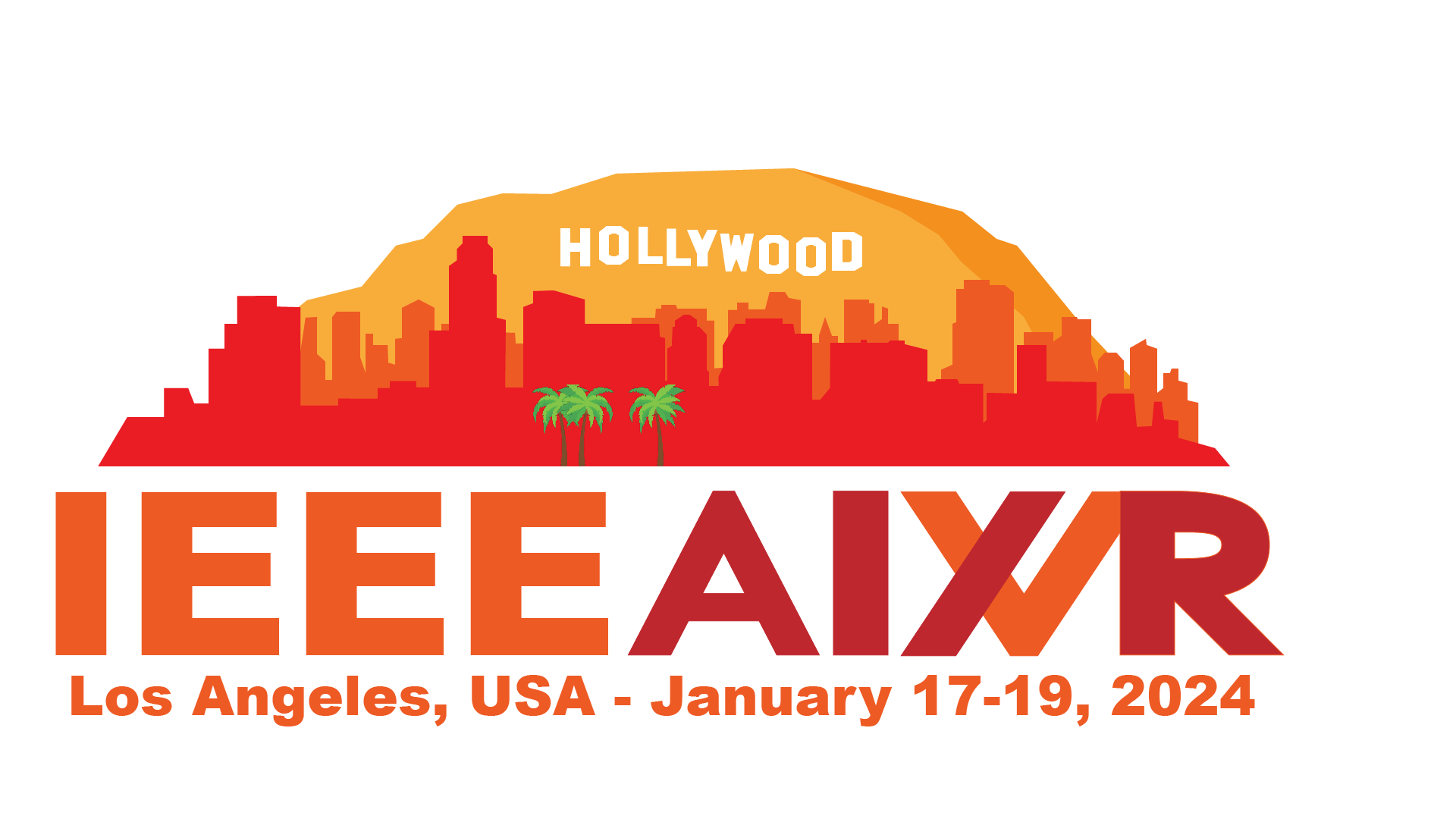

The main program of IEEE AIxVR will also feature special sessions providing the opportunity for a more focused view on a topic related to the conference theme. Special sessions at IEEE AIxVR 2024 include:
Special session papers can be up to 8 pages long (excluding references) and will be published in IEEE Xplore. See detailed submission instructions below.
Chairs: Misha Sra (UC Santa Barbara), Jonathan Ventura (California Polytechnic State University)
IEEE AIVR is all about bringing people together who have an interest in AI, VR/AR, or both and creating new communities related to these exciting research domains. To foster this, we are organizing two special sessions targeted towards people doing research in either of these fields that can potentially be of relevance for people from other communities.
Papers describing AI-related research that is of potential benefit for people from the VR/AR community are encouraged to submit their work to the special session "AI for VR/AR". The research does not has to address VR/AR aspects already, as long as it can trigger interests for people from these communities. Likewise, we invite people who are focusing mostly on VR/AR technologies and applications to submit their work to the special session "VR/AR for AI". Research suitable for this session ranges from technical innovations, to user studies including perception and experiences, to new usages of VR/AR.
Scope of the special session: Our aim is to foster discussion between AI and VR/AR researchers. Hence, any kind of research is welcome that is of potential benefit for the other community. For example, if you are working on AI technologies that could potentially be useful for VR/AR systems, the special session "AI for VR" provides a forum to present your work to the VR/AR community. Likewise, you can use these special sessions to gain feedback from the other communities for your research. For example, if you are eager to get input of how AI could be used to improve your VR/AR system, you can use the special session "VR for AI" to present your work to the AI community to gain feedback from them and maybe even establish future research collaborations.
Chairs: Bhojan Anand (National University of Singapore), Chedy Raissi (Riot Games)
Computational creativity is an emerging field of research within AI that focuses on the capacity of machines to both generate and evaluate novel outputs that would, if produced by a human, be considered creative. Seamless integration of virtual and real word and immersive nature of AR and VR has made these platforms powerful to build, express, understand, support and evaluate human creativity in multiple disciplines such as medicine, architecture, education, creative arts and engineering. Computational Creativity for Virtual and Augmented Reality (CCVAR) is multidisciplinary area that includes artificial intelligence, system design, virtual reality, cognitive psychology, philosophy, the arts.
The objective of this special session is to bring together AR/VR researchers from academic and industry to work towards the vision of using AI to generate AR/VR contents (eg. generating possible avatars, maps, words, dialogs, music) that support human creativity and building applications to understand and enhance human creativity. For example an AI supported creativity process may take prompts/images to describe an avatar and generates a range of novel 2D or 3D avatar models that supports the artists in the creative thinking process and design.
Scope of the special session: We invite researchers to submit original, high-quality research papers that address creativity in VR/AR systems and frameworks. The special session welcomes both technical papers and position papers, and authors may also submit work in progress in the areas including, but not limited to:
Chairs: Wolfgang Hürst (Utrecht University), Min-Chun Hu (National Tsing Hua University)
In recent years, both Artificial Intelligence (AI) and eXtended Reality (XR) have started to become widely used in learning and education. For example, simulations and serious games help students in STEM (science, technology, engineering and mathematics) to better understand abstract concepts or observe science phenomena more easily. Immersive sports learning/training in VR allows athletes to repeatedly practice with controlled configurations just like they do on the field or court. Sensor and AI technologies can be used to monitor the behavior of learners or trainees and further infer their learning or training effectiveness. This special session aims to provide an interdisciplinary platform for researchers to discuss their AI and/or XR-related work in the context of learning, education, and serious gaming from both scientific and educational perspectives.
Scope of the special session: Relevant topics include, but are not limited to analyses and applications of the following areas:
Special session papers should be up to 8 pages long (excluding references) and will be reviewed based on their contribution and potential relevance for the communities involved in IEEE AIVR. Submissions should be double-blind (i.e., remove all author information) and will be thoroughly reviewed by at least two members from the international program committee. Contributions of distinguished quality will be selected for best paper awards and invited for publication in internationally renowned journals. If accepted, one author must register at the full conference rate and present the work at the conference. Special session papers will be published by IEEE Computer Society Press and included in the IEEE Xplore Digital Library.
Authors should submit their manuscripts in double-column IEEE format following the official IEEE Manuscript Formatting guidelines and considering the page limits and anonymization requirements indicated below. Also consider the IEEE policies for publications (i.e., you must own copyright to all parts and the manuscript must be original work and not currently under review elsewhere).
Submit your paper
via EasyChair
Select "Call for special session papers" when submitting. You can select which special session when you upload your paper. Authors should upload their papers in pdf format (ending .pdf) following the page lenght restrictions indicated above. Uploading an accompanying video is possible (accepted formats: mov, mp4, mpg, wmv, or zip to bundle multiple shorter video clips).